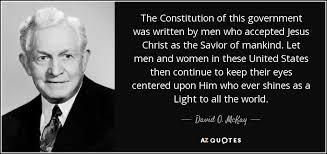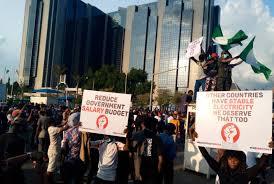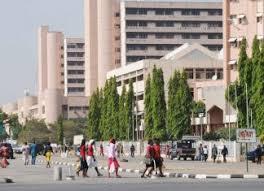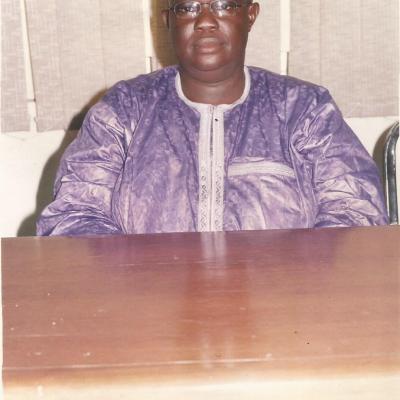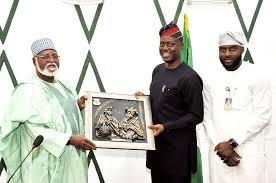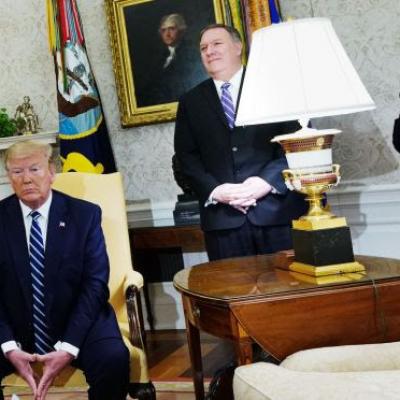Happenings
Events, People and Places
-
The LORD Our Righteous Savior
- On 15/12/2020
- In Pictures
Jeremiah 23 : 5-6
5 “The days are coming,” declares the LORD, “when I will raise up for David a righteous Branch, a King who will reign wisely and do what is just and right in the land. 6 In his days Judah will be saved and Israel will live in safety. This is the name by which he will be called: The LORD Our Righteous Savior.
-
Don't' Keep Quiet in the Face of Hardships-AWC to Nigerians
- On 17/11/2020
Nigerians have been called upon not to keep quiet in the face of hardships.
This call was made by the All Workers Convergence(AWC) through its National Coordinator, Comrade Andrew Emelieze.
''Nigerians are now been visited with more hardships because labor leaders are sleeping. On the side of the Government, our rulers have shown that they have nothing to offer rather than the fact that things would go from bad to worse, therefore it is left for Nigerians to decide their fate if they want the hardships to continue they can keep quiet'', Comrade Emelieze concluded.
-
Religious Inspiration for Social Drive
- On 17/11/2020
- In The People Talk
 Despite the countless number of Churches and Mosques in Nigeria and other faith-based organizations from which our leaders emerge as products of our spiritual space, Nigeria is yet to tackle the issue of institutional indiscipline, injustice, and marginalization.
Despite the countless number of Churches and Mosques in Nigeria and other faith-based organizations from which our leaders emerge as products of our spiritual space, Nigeria is yet to tackle the issue of institutional indiscipline, injustice, and marginalization.
The Holy Quran unmistakably charges every human being and the nation at large, to fight fraud and enthrone sanity for development. 5: 62-63 refers, '' Many of them thous dost see raising each other in sin and transgression and their eating of things forbidden, evil indeed are the things they do, why do not the Rabbis and the Doctors of law forbid them from their habit of uttering sinful words and eating things forbidden? Evil indeed is their works.'' The Holy Bible also admonished against oppressing the poor, it is therefore highly embarrassing for the government to talk of the poorest of the poor in Nigeria's democracy, while what we battled against under the military regime was unabating poverty. Proverbs 22: 22-23 refers,'' It is easy to steal from the poor people, but don't do it and don't take advantage of those poor people in court. The Lord is on their side, He supports them and He will take things away from any person that takes from them.'' Presently, we can see that religion is been underutilized to achieve in the areas of safety and security protocols for the environment, spiritual inspiration needs to articulate the social drive of the people for sustainable development and to advance the cause of credible leadership and good governance. The implication on the faith-based organizations is that of underperformance and low success rate, considering the coverage level of the curricula upholding them. We must not give in to people who are yet to believe in religious sanity and effectiveness for nation-building to insinuate that the Scriptures are dead. Let us change the face of religious practices in our various religious centers to be more focused on our needs as a nation. Nigeria can still be inspired into meeting up the demands of democracy for functional operations, justice, equity, peace, security, and sustainable development since all these values are dependent on the people.Founder, Spiritual Head and Grand Imam Shafaudeen-in-Islam Worldwide,Wakajaiye, Ibadan, Nigeria
-
Avoid Underutilization in Religious Potentials
- On 05/11/2020
- In Special Report
 The Holy Quran 30: 41-42, states that ''Mischief has appeared on land and sea because of the need that the hands of men have earned, that Allah may give them a taste of some of their deeds: in order that they may turn back from evil. Say: Travel through the earth and see what was the end of those before you: Most of them were idolators (hypocrite, liars, infidels, etc.)
The Holy Quran 30: 41-42, states that ''Mischief has appeared on land and sea because of the need that the hands of men have earned, that Allah may give them a taste of some of their deeds: in order that they may turn back from evil. Say: Travel through the earth and see what was the end of those before you: Most of them were idolators (hypocrite, liars, infidels, etc.) From the perspective of the Holy Bible, Mathew 10: 20, then Jesus criticized the cities where he did most of his miracles. Jesus criticized those cities because the people there did not change their lives and stop sinning.''
On a serious note, Nigeria is blessed with several Churches, Mosques, and other faith-based houses of God, but their religious leaders neither fear God nor are Scripture compliant, for them to have the necessary impact on their people, the high and the low.
Although daily, they conduct services with music, funeral services inclusive, yet the people's behavior are yet to change for the better.
If the Holy Prophet Mohammed happened to be alive today, the regret would not spare all the Muslims for not ben able to use the Holy Quran to effect the necessary changes.
For Nigeria to be prevented from heading for the precipice, all the houses of God must be made to be alive to their responsibilities of teaching the Scripture for people's true followership and practice, to be able to live exemplary lifestyles that would be bequeathable as a legacy to the future generation.
We must allow God to illuminate all houses of God for worshipers to radiate light into the society and for sanity to reign supreme so that the mechanics of al the machinery of operation are allowed to work without hindrance to promote competence and work attitude that is efficient and for everybody to be responsive and responsible. Citizens on the issue of patriotism for true development, the best solution is to follow a divine path of honor, whereby the religious systems are alive to their responsibilities of educating, admonishing, and processing al adherents onto the path of righteousness to be spiritually charged enough into a state of trust, reliability, and dependability when challenged with the social responsibilities of management and administration, transparency and accountability for the purpose of good governance.
The Holy Quran 30: 43 states, ''But set thou thy face to the right religions before there come from Allah the Day which there is no chance of averting: on that Day shall men be divided in two, those who reject faith(doing things aright) will suffer from that rejection: and those who work righteousness will make provision for themselves(even in heaven).''
Let us avoid underutilization of the potentials in our religions because human failure to tap the anointing will eventually deactivate them into a ruinous end. God forbid.Prof. Sabitu Olagoke
Founder, Spiritual Head and Grand Imam Shafaudeen-in-Islam Worldwide,Wakajaiye, Ibadan, Nigeria
-
Good Parenting an Antidote to Social Upheaval
- On 26/10/2020
- In The People Talk
 Why should we allow things to fall apart ? and Why should we keep mute in the face of bad governance? Why should leadership failure characterize governance and home parenting?
Why should we allow things to fall apart ? and Why should we keep mute in the face of bad governance? Why should leadership failure characterize governance and home parenting?
The Holy Quran 47: 35 -36 charges all of us to avoid ''siddon look'' attitude, ''Be not weary and faint-hearted, crying for peace when ye are the Uppermost. For Allah is with you, and will never put you in lose for your good deeds. The life of this world is but play and amusement: And if ye believe and guard at this evil, He will grant you your recompense, and will not ask you to give up your possessions.''
For Nigeria and other nations to be restored into a state of sanity, prosperity, and welfare, peace, and development, the voice of God, our creator must be regarded as the giver of life, that must be cherished beyond the mere mortal voice of wisdom, hence there is a need to operationalize the scriptures in running human affairs.
The submission of the Holy Bible for the purpose of genuine restoration needs to be heeded. Prov.10: 15-17,'' Wealth protects the rich person. And poverty destroys a poor person (good governance, hard work, and dignity of labor are desired here). If a person does good, then he is rewarded. Heis has given life. Evil brings only punishment(freedom, liberty, and correctional centers/prison, choose one).
A person who learns from his punishment can help other people to live too. But a person who refuses to learn only leads people the wrong way(true mentorship is desired rather than godfatherism).
To promote good citizenry, for the society, the elders must role model virtue because only a development that is sustainable is bequeathable. What are we putting forward for Nigeria tomorrow?
The Holy Quran 59: 18 admonished, ''O ye who believe! Fear Allah and let every soul look to what provision he has sent forth for the morrow. Ye: Fear Allah: for Allah is well acquainted with all that ye do ''. Doing things accordingly and in an orderly manner is a function of due process
which a pathway to one's understanding of the fear of Allah.''
Since the product of the home needs to be nature nurtured for the society to enjoy peace and the nation to have credible leaders, heeding the admonition of God must start from the home for the nation to have a strong foundation upon which it has to build for the nation to have good governance and sustainable development.
Psalm 127 with all affirmation declared that without divine intervention those who labor to build a house will ever labor in vain.
However, divine intervention is beyond the ability to read, write, and sing the provisions of the scripture, it extends strictly to the vitamins of good attitude which is expected to produce good citizens for any nation.
The foundation of God, good parenting, disciplined, responsible, and loyal subordination most especially to parents and one's leader, with good interpersonal relationships to keep good neighborliness, are the essential subject content to keep the home, society, and the nation.
This is the message of the Holy Quran 6: 151-152,'' Say come, I will rehearse what Allah hath really prohibited you from Join not anything with Him: Be good to your parents; Kill not your children on a plea of want;-will provide sustenance for you and for them; come not nigh to indecent deeds whether open or secret; take not life which Allah hath made sacred except by way of justice and law: Thusdothhe command you that ye may learn wisdom. And come not nigh to the orphan's property, except to improve it until he attains the age of full strength; give measure and weight with full justice;-no burden do we place on any soul, but that which it can bear;-whenever ye speak, speak justly even if a near relative is concerned covenant of Allah-thus doth He commands you, that ye may remember. Verily, this is My Way leading straight: follow it: follow not other parts: They will scatter you about from His Path, thus doth He command you that ye may be righteous.
This is a complete guide for a fulfilled life, if we can follow all these steps of admonitions based on justice ethics and the need to be responsive and responsible to the needs of others, the family and neighbors inclusive.Prof. Sabitu Olagoke
Founder, Spiritual Head and Grand Imam Shafaudeen-in-Islam Worldwide,Wakajaiye, Ibadan, Nigeria
-
Are the Scriptures Dead ?
- On 06/10/2020
- In The People Talk
This statement becomes a matter of debate even among religious people. This inscription attracts motorists when they are on motion along the Ibadan/Lagos expressway just after the toll gate. LOne should expect reactions from religious people most especially as popular in Nigeria-the Christians and the Muslims-but none of them have so far raised eyebrows. One would first of all think that the silence which may connote agreement must have been as a result of the constitution f the members of the group that disowned God and all religions are constituted by the conglomerate of the Christians, Muslims, and traditionalists, most especially those who are tired of the way Christianity and Islam are been practiced, look for another messiah on earth.
However, a critical study of the Holy Bible of the Christians and the Holy Quran of the Muslims condemn the consent implied by their silence.
If one should go by the provisions of the Holy Quran 2: 62, ''Those who believe in the Quran(that is the true Muslims), and those who follow the Jewish scriptures(that is Judaism) and the Christians and the Serbians(that is true followers of Jesus Chris and the true followers of John the Baptist),-any who believe in Allah(that is God almighty) and the Lats Day, and work with their Lord: on them shall be no fear nor shall they grieve.''
From the biblical point of view, Rev. 22: 18-19,'' I warn every person that hears the word of the prophecy of the book: if a person adds anything to these words, then God will give that person the troubles written in this book and if any person takes away from the words of this book of prophecy then God will take away that person's share of the tree of life and of the holy city which are written about this book.''
Al these authentic statements of fact are expected to be worked on y operationalizing that provisions of the scriptures even when they seem difficult to follow. This is why the Holy Quran 61:2-4 states that,'' Oh ye who believe! Why say ye that which ye do not? Grievously hateful is it in the sight of Allah that ye say that which ye do not. Truly Allah loves those the cause in battle array(that is consistency in goodness-thoughts, acts, deeds, and words) as if they were a solid cemented structure(concrete reinforcement through fabricated iron or steel)''.
Suffice it now to say that the Muslims and Christians if truly they follow their scriptures would have received the grace of the provisions of 2 Tim. 3: 16-17(that is ''all scripture is given by God. And all Scripture is useful for teaching and for showing the things that are wrong in their lives. I t is useful for correcting faults and teaching how to live right. Using the Scriptures the person who serves God would be ready and would have everything he or she needs to do every good work(management, administration, governance, credible leadership, sustainable development, etc.)
Church and Mosque goers are expected to be good citizens of their nations with the following moral disciplines characterized by a positive mindset (that is positive self-image). All the glory of being relevant in all facets of global best practices because we are all operating at the global market phase that deserves competition among the people of all races, self-confidence, self-esteem, and all-encompassing core values of integrity as well as a positive mental attitude that are necessary to always be at peace with neighbors with the glorious advantage of taking firm, accurate and precise decisions always. Muslims and Christians are expected to be prime movers with a high level of reliability and dependability factors in those areas of transparency and accountability in the face of probity.
However, all these global qualities are lacking in Nigerian Christians and Muslims, implying that they have failed God and humanity to allow such a derogatory statement to the Scriptures. When observers are 'blind', it does not mean that there is no light during the day, when religious leaders fail all divine tests, it does not mean that the Scriptures are dead.
Suffice it now to say that the Scriptures must be alive in every adherent because the Bible and the Holy Quran attests with all certainty from the Bible Rev. 22: 20-21,'' Jesus is the one that says that these things are true, Now He says yes I am coming soon.'' Amen come, Lord Jesus,(the grace and kindness) of the Lord Jesus be with all people.
And from the Holy Quran 43: 61, '' And Jesus shall the sign of the coming of the hour(of judgment): therefore have no doubt about the hour, but follow ye Me: this is a straightway.''
For the Scriptures not to die, the Muslims and the Christians must be scripture compliant as good citizens of their nations, with characteristic feasible, viable, and equitable sustainable development that should manifest. On a final note, the Scriptures are not dead.Prof. Sabitu Olagoke
Founder, Spiritual Head and Grand Imam Shafaudeen-in-Islam Worldwide,Wakajaiye, Ibadan, Nigeria
-
Uphold Love to Justify Religious Worship
- On 28/09/2020
- In Special Report
When it is allowed to be fraught with sins and crimes it lacks the body preservation essence and when the worshipper allows satan to overwhelm and control his or her psyche and mind, divine immunity is lost just as an individual becomes possessed by the evil spirit.This is why the almighty stated that we must totally get committed to the cause of our different religious beliefs as it is in the Holy Quran 2: 208-209, '' Oh ye who believe! enter into Islam wholeheartedly and follow not the footsteps of Satan, for he is to you an avowed enemy. If ye backslide after the clear signs have come to you then know that Allah is exalted in Power, Wise.''For us, therefore, to go about our religious worship, the scripture is the vital curriculum for the maximum guide to be able to have just worship.This is why the Almighty Allah separates the chaff from the wheat by making a clear admonition on the use of the scripture of one's upheld religion, as stated in Quran 16: 98-100,'' When thou dost read the Quran, seek Allah's protection from Satan the rejected one. No authority has him over those who believe and put their trust in the Lord.''His authority is over those only who take Him as patron and who join partners with Allah.Our inability, therefore, to give the Almighty Allah just worship is the source of various travails traumatizing poverty in the religions of various observable sins and crimes: fornication, adultery, kidnapping, pedophilia, incest, armed robbery among other heinous and grievous crimes.This is in line with the promise of satan as expressed in Quran 4: 119-120, ''I will mislead them, and I will order them to slit the ears of cattle and deface the fair nature created by Allah.'', '' Whoever, forsake Allah, takes satan for a friend, hath of a surety suffered a loss that is manifest. Satan makes them promises and creates in them false hopes, but satan's promises are nothing but deception.''The allegory over this is that as a pollutant contaminate the air, making the environment to be hostile to human existence, satanic infiltration into human worship of his creator will ever create an air of destruction on earth.Suffice it now to say that we must be scripture complaint to be godly for our religion to be beneficial to man and his environment.Let us, therefore, take to God's admonition without bias to the source of which may be the Holy Quran, New or Old Testaments of the Holy Bible, provided that the contents are issue-driven as in the case of 1 Corinth: 13-13'' So these three things continue: Faith, Hope and Love and the greatest of this is Love.''Religious worship is an environment of hate or no love that renders useless the faith, just as there is no hope in religious practice that lacks just worship.To save self, the community, and the nation from the deluge of havoc and satanic embarrassment, let us create an environment of love and just worship to reap the dividend of religion in the form of justice, equity, peace, security, prosperity, and sustainable development, most especially for Nigeria.Prof. Sabitu Olagoke
Founder, Spiritual Head and Grand Imam Shafaudeen-in-Islam Worldwide,Wakajaiye, Ibadan, Nigeria
-
Shortcomings in the Civil Service a Threat to Development-Prof. Olagoke
- On 10/09/2020
- In The People Talk
 The present composition of the public service of the federation and states is, perhaps, partly responsible for the myriad of challenges confronting the country today. The insinuation is that the public service at all levels is overloaded and a burden to the government. There is also the suggestion that a number of Ministries, Departments, and Agencies are not relevant to the present economic realities. Corruption, the awkward bureaucratic process, and political partisanship are obvious features of the public service. In this interview, the Founder, Spiritual Head, and Grand Imam of Shafaudeen-in-Islam Worldwide, Prof. Sabitu Olagoke opines that the shortcomings in the civil service serve as stumbling blocks for development. Excerpts :
The present composition of the public service of the federation and states is, perhaps, partly responsible for the myriad of challenges confronting the country today. The insinuation is that the public service at all levels is overloaded and a burden to the government. There is also the suggestion that a number of Ministries, Departments, and Agencies are not relevant to the present economic realities. Corruption, the awkward bureaucratic process, and political partisanship are obvious features of the public service. In this interview, the Founder, Spiritual Head, and Grand Imam of Shafaudeen-in-Islam Worldwide, Prof. Sabitu Olagoke opines that the shortcomings in the civil service serve as stumbling blocks for development. Excerpts :How can the public service at the Federal, State, and Local Government levels be made very effective and efficient to meet up with the present economic realities in Nigeria?
The engine room of governance is the civil service which by extension serves both the public service and parastatals in addition to the government machinery of operation. Unfortunately, funding has to come from the government for the public and civil service to be productive enough to effect positively on the environment, impact on the society and the people, and to boost the economy for the survival of the people through the provision of basic amenities and functional infrastructure to ease and support government activities. In a sane society, civil servants are expected to be incorruptible because they operate through the rule of the law. They are equally supposed to be highly motivated so that they don't get corrupted for the necessary qualities and standards to be set and maintained to a sustainable level. The civil service code of conduct presently suffers a lot under the bottleneck of bureaucracy, characterized by an unwarranted delay in processing, hide and seek game in the areas of treating files while the oath of confidentiality has equally become a political tool to victimize unfriendly clients.
In the past, civil servants were rigid and religious in adhering to the code of conduct and the civil service rules. That was an era when technocrats were highly revered, feared, and respected because of their no-compromise attitude.
However, today, they easily collude in perpetrating fraud, and when been used for fraud by corrupt politicians they easily give way and help themselves too, to perfect diabolical plans or sabotage in becoming a conduit pipe to siphon public funds or our commonwealth. Thye easily leaks official secrets even to public servants. Productivity equally suffers due to the lackadaisical attitude of workers to work. Most of the workers have their personal business outfits which they attend to with all devotion than their officially assigned duties for which they are paid. It is not uncommon to witness orgies of idle hours in various places of work, civil servants, public servants, and government officials.
\The work ethic through the mechanics of auditing to support the much-needed concept of transparency and accountability is equally rendered ineffective even in the presence of the introduced Service Compact with All Nigerians(SERVICOM) AND The Anti- Corruption and Transparency Unit (ACTU)which are expected to be fillers and pillars of support for the Independent Corrupt Practices Commission(ICPC) and the Economic and Financial Crimes Commission(EFCC) respectively. Is it not embarrassingly surprising that none of our Ministries, Departments, and Agencies can pass the tets of corporate governance that demands routine checks for auditing, accountability, and transparency. This is why Nigeria continues to promote strong individuals and weak institutions. Cases of Rectors, Vice-Chancellors, Registrars, and Bursars, who live above their means abound. They help themselves with funds meant for the facility update of our institutions of learning which usually fail accreditation exercises. The major problem takes its root in the civil service leading to leading to unwarranted lapses in both material and administrative network for realizable objectives. The shortcomings that revolve on bureaucratic bottlenecks, leakages in running the system, wrong attitude to work political partisanship at all levels of governance must be squarely addressed to make governance, management, and administration effective. The respect for the civil service rules would in no small measure make all activities effective to meet up with the present economic realities.




